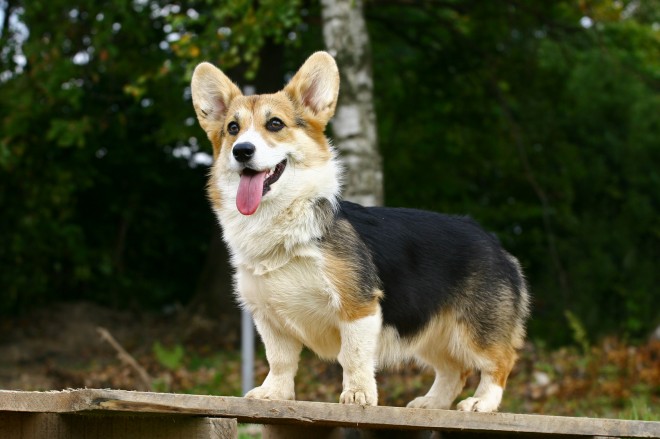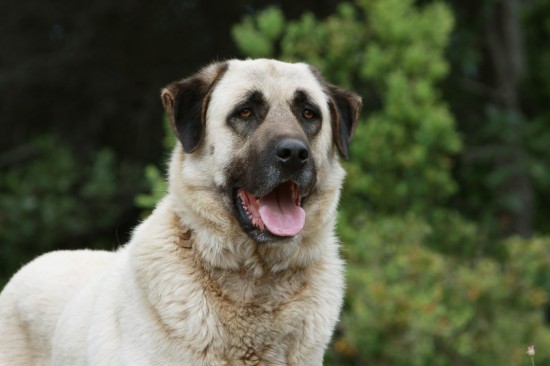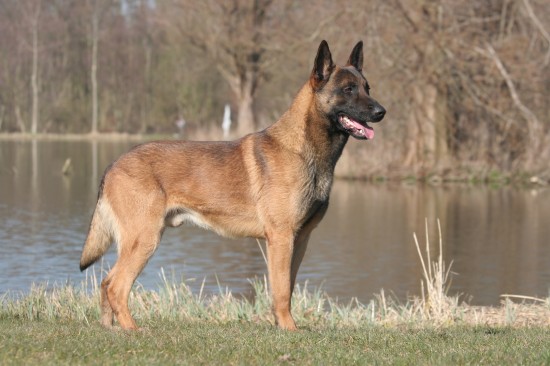
One of the most serious, and unfortunately most common, problem
behaviors among dogs is that of chasing cars. Dogs must be
trained as early as possible that chasing cars is not
acceptable. That is because dogs that chase cars eventually
become dogs that catch cars, and car plus dog always equals big
trouble.
There are many reasons that dogs chase cars. For one thing,
chasing moving objects is an ingrained, instinctual behavior
that can never be completely removed. Chasing behaviors, however
can and should be controlled through a combination of good
training and supervision.
Some dogs are more apt to chase cars, bikes, joggers, cats and
other dogs than are others. Dogs that have a high prey drive,
including breeds that have been bred for hunting, are
particularly susceptible to the thrill of the chase. Herding
breeds are also apt to chase cars, attempt to herd the neighbors
children, or express other undesired traits of their breeding.
One reason that many dogs chase cars in particular is that they
have learned to associate cars with good time and fun things.
Most dogs love to ride in the car, and when they see a car they
may try to chase it down for a ride.
No matter what your dog’s motivation for chasing cars, however,
it is important to curb this dangerous behavior as quickly as
possible. Training the dog not to chase cars starts with
teaching the dog the meaning of the “Off” command. The “Off”
command is one of the basic tenets of obedience, and it must be
mastered by every dog.
Teaching the dog to stay where he is, even if interesting,
exciting things are happening elsewhere, is very important to
all aspects of dog training. In the world of professional dog
training, this is sometimes referred to as distraction training.
Distraction training is very important, and it is applicable to
teaching the dog not to chase cars.
Teaching this important lesson is not something you will be able
to do on your own. You will need at least one other person – a
volunteer who will slowly drive by and tempt your car with his
bright, shiny object. You will stand with your dog on his leash
as the volunteer drives by. Having the volunteer drive your own
car can provide an even greater temptation, since dogs are able
to distinguish one car from another. If your car is the one that
provides his rides, it is likely to be the most tempting object
in the world.
When your friend drives by, either in your car or his, watch
your dog’s reaction carefully. If he begins to jump up or move
away, repeat the “Off” command and quickly return your dog to
the sitting position. If he remains where he is, be sure to give
him lavish amounts of praise and perhaps a treat or two.
Repeat this process many times over the course of a few days.
Once your dog is reliably remaining seated when your friend
drives by, start lengthening the distance between yourself and
your dog. A long, retractable leash works great for this
process. Slowly lengthen the distance between you and your dog,
while still making sure you have control.
Even after your dog is trained to not chase cars, however, it is
important to not leave him out off the leash unsupervised.
Leaving a dog unattended, except for within a properly and
securely fenced in yard, is simply asking for trouble. Dogs are
unpredictable, and it is always possible that the chase instinct
could kick in at exactly the wrong moment. The best strategy is
to confine the dog when you cannot supervise him.
 Pembroke Welsh Corgi Hereditary Health And Longevity
Pembroke Welsh Corgi Hereditary Health And Longevity
 The Amazing And Unusual Working Role Of The Anatolian Shepherd Dog
The Amazing And Unusual Working Role Of The Anatolian Shepherd Dog
 Health Issues More Commonly Seen In The Belgian Shepherd
Health Issues More Commonly Seen In The Belgian Shepherd
 Myxomatosis In Rabbits
Myxomatosis In Rabbits
 Why Are Domestic Cats Frightened Of Cucumbers?
Why Are Domestic Cats Frightened Of Cucumbers?
 Why Does My Cat Have Bad Breath ? The Five Top Reasons
Why Does My Cat Have Bad Breath ? The Five Top Reasons
Copyright © 2005-2016 Pet Information All Rights Reserved
Contact us: www162date@outlook.com